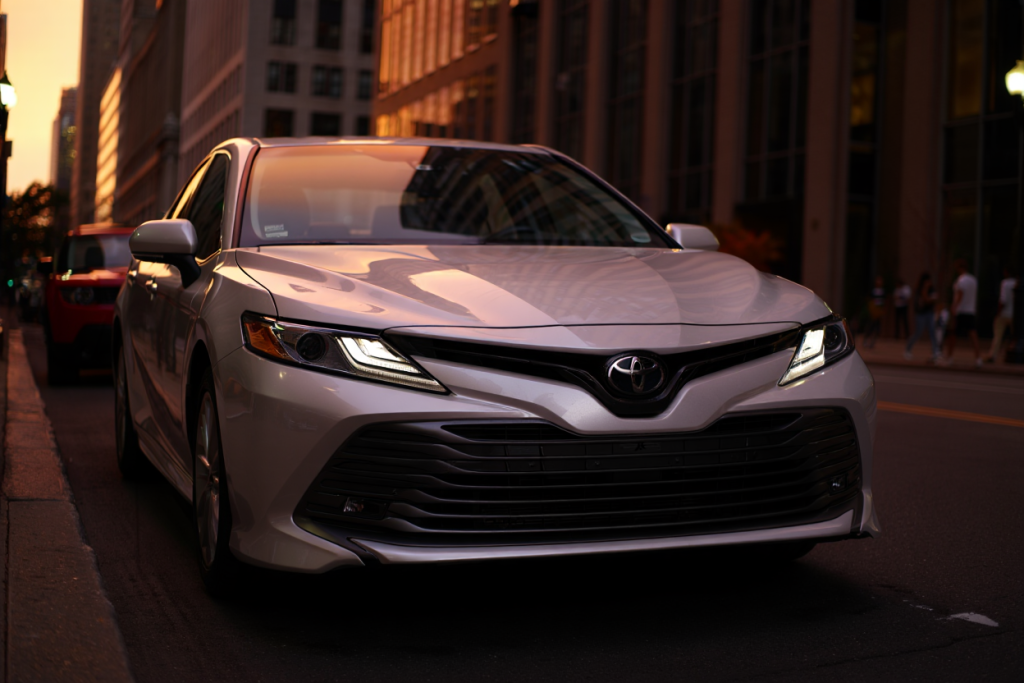Every driver wants to save money at the gas pump, but not everyone realizes that something as simple as your car’s air filter can make a big difference. While modern engines are full of complex technology, the air filter remains one of the most affordable parts to maintain—and one of the most overlooked.
In this article, I’ll dive into how a clean air filter impacts fuel efficiency, the science behind it, common mistakes drivers make, and practical steps you can take to keep your engine breathing easily.
What Does a Car Air Filter Do?
Before we explore how it improves fuel economy, it’s important to understand the basic role of the air filter.
The Function of an Air Filter in Your Engine
Your engine needs a precise mix of air and fuel to run efficiently. The air filter ensures that only clean air enters the combustion chamber, blocking dust, pollen, dirt, sand, and even insects. Without it, contaminants would damage internal components like pistons and cylinders.
What Happens When an Air Filter Gets Dirty?
Over time, filters become clogged with debris. A dirty air filter restricts airflow, forcing the engine to work harder to draw in oxygen. This imbalance leads to a richer fuel mixture (more fuel than air), which reduces fuel economy and can cause sluggish performance.
How a Clean Air Filter Improves Fuel Efficiency?
Clean air filters have a direct impact on how much gas your car uses. Let’s break it down.
Optimizing the Air-Fuel Mixture
Engines rely on the right balance of oxygen and fuel. A clean filter allows maximum airflow, helping maintain the optimal air-fuel ratio. This means fuel burns more completely, producing more power with less gasoline.
Reducing Engine Strain
When airflow is blocked, the engine compensates by injecting extra fuel. A clean filter reduces this strain, allowing smoother combustion and improved mileage. Studies suggest that replacing a dirty filter can improve fuel economy by up to 10% in older cars.
Enhancing Combustion Efficiency
Efficient combustion not only saves fuel but also lowers harmful emissions. Cleaner combustion reduces carbon buildup inside the engine, keeping it healthier over the long term.
Signs Your Air Filter is Affecting Fuel Efficiency
Keeping an eye on your air filter can prevent poor mileage and unnecessary fuel costs.
Reduced Miles Per Gallon (MPG)
If you find yourself visiting the gas station more often, your air filter may be the culprit. Sudden drops in fuel efficiency often point to restricted airflow.
Sluggish Acceleration
A clogged filter limits oxygen intake, causing your car to hesitate when you press the gas pedal. If your car feels slow to respond, check the filter.
Black Smoke from Exhaust
Poor combustion caused by excess fuel and limited air can result in darker exhaust smoke. This is both a sign of inefficiency and a pollution issue.
OEM vs. Aftermarket Air Filters: Which is Better for Fuel Economy?

Not all filters are created equal, and your choice between OEM and aftermarket can influence performance and efficiency.
OEM Air Filters
OEM (Original Equipment Manufacturer) filters are designed specifically for your car. They provide a perfect fit, reliable performance, and consistent fuel economy. The downside is their higher price and limited availability.
Aftermarket Air Filters
Aftermarket options range from cheap paper filters to premium performance filters. Some high-flow aftermarket filters may improve airflow and slightly boost efficiency. However, quality varies widely, and a poorly made filter may do more harm than good.
Cost of Air Filters vs. Fuel Savings
Maintaining a clean air filter isn’t just about performance—it’s also about your wallet.
Typical Replacement Cost
- OEM filter: $20–$40
- Aftermarket paper filter: $10–$25
- Reusable performance filter: $50–$70 upfront, but washable and long-lasting
Fuel Savings Over Time
Replacing a clogged air filter can save you $100–$150 per year in fuel depending on how much you drive. For high-mileage drivers, the savings quickly outweigh the replacement cost.
Common Mistakes Drivers Make With Air Filters
Even though air filters are simple, car owners often make mistakes that hurt efficiency.
Forgetting to Replace Regularly
Most filters should be replaced every 12,000–15,000 miles, or sooner in dusty conditions. Neglecting this interval is one of the most common reasons for poor fuel economy.
Choosing the Cheapest Filter
Low-quality filters may save you a few dollars upfront but often provide poor sealing or thin filtration material. This allows dirt into the engine, reducing both efficiency and longevity.
Incorrect Installation
Even the best filter won’t work if installed improperly. Gaps around the edges allow unfiltered air inside, which can harm the engine. Always double-check the fit when replacing.
Practical Tips for Maximizing Fuel Efficiency with Air Filters
A little maintenance goes a long way in saving gas and protecting your engine.
How to Choose the Right Filter
- Check your owner’s manual for the recommended type.
- Use the OEM part number to avoid mismatches.
- If you want long-term savings, consider a reusable performance filter.
Simple DIY Replacement Steps
- Locate the air box (usually a black plastic case under the hood).
- Open the housing (secured with clips or screws).
- Remove the old filter and wipe out any loose debris.
- Insert the new filter, ensuring it sits flush.
- Close the housing securely.
When to Clean Instead of Replace
If you have a washable filter, clean it every 15,000–30,000 miles. Use only the cleaning kit provided by the manufacturer. Over-oiling can damage sensors like the MAF (Mass Air Flow) sensor.
Environmental Benefits of a Clean Air Filter
Improving fuel efficiency also means reducing emissions, which is better for the planet.
Lower Carbon Emissions
More complete combustion results in fewer unburned hydrocarbons, reducing your car’s carbon footprint.
Less Waste with Reusable Filters
While OEM and aftermarket paper filters are disposable, reusable filters cut down on landfill waste. They can last the lifetime of the car with proper care.
Conclusion
Something as simple as a clean air filter can play a major role in improving your car’s fuel efficiency, reducing emissions, and keeping your engine healthy. Whether you choose an OEM filter for reliability or a reusable aftermarket filter for long-term savings, the key is consistency.
By replacing or cleaning your filter at the right intervals, you’ll not only save money on gas but also extend the life of your vehicle.
FAQs
- How much can a clean air filter improve fuel efficiency?
A clean air filter can improve fuel efficiency by up to 10%, especially in older vehicles with carbureted engines. In modern fuel-injected cars, the gain may be smaller but still noticeable. The real benefit is consistent performance and preventing unnecessary fuel waste. - How often should I replace my car’s air filter?
Most manufacturers recommend replacement every 12,000 to 15,000 miles, or once a year. However, if you drive in dusty or polluted environments, you may need to replace it sooner. Always check your owner’s manual for exact intervals. - Can a dirty air filter damage my engine?
Yes, a clogged or low-quality air filter can let dirt and debris enter the engine. Over time, this causes wear on cylinders, pistons, and valves. It can also reduce efficiency, increase emissions, and lead to costly repairs if ignored for too long. - Are reusable air filters worth it for saving fuel?
Reusable filters are a good investment for long-term car owners. While they cost more upfront, they last for years with proper cleaning. They don’t drastically improve fuel economy but provide consistent airflow, saving money on replacements over time. - Can I replace an air filter myself or should I go to a mechanic?
Most air filters are easy to replace at home with basic tools. The process usually takes under 10 minutes. Doing it yourself can save you $50–$100 in labor costs at the dealership, making it one of the easiest DIY car maintenance tasks.

Benjamin Grey is an automotive engineer and writer at Car Parts Advisor. With years of experience in the automotive industry, he shares expert advice on car parts, maintenance, and repairs to help car owners keep their vehicles running smoothly.





